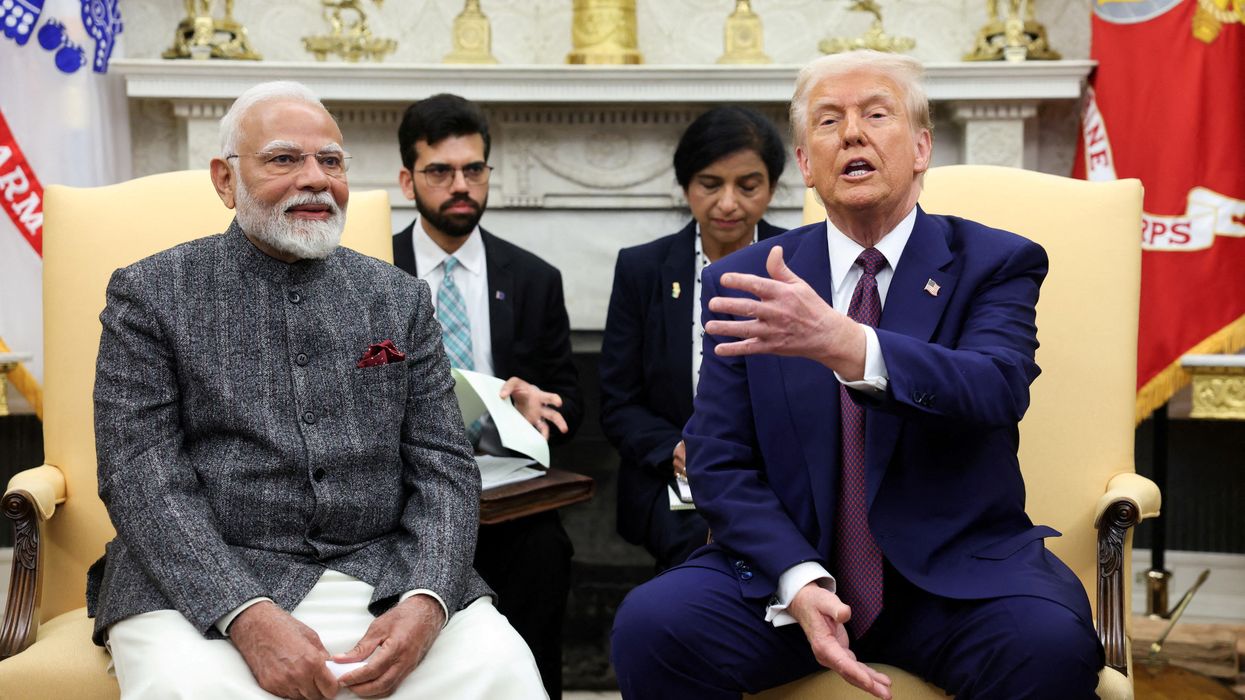US OFFICIALS arrived in India on Tuesday (25) to hammer out a trade deal just days before president Donald Trump’s tit-for-tat tariffs begin across the globe, including against the world’s most populous nation.
Assistant US trade representative Brendan Lynch will lead meetings with Indian officials as part of ongoing bilateral trade talks.
New Delhi and Washington announced last month that they would finalise negotiations on the first tranche of a “mutually beneficial" trade agreement this year.
But the threat of Trump’s reciprocal tariffs will loom large in the background of this week’s talks.
India's protectionist policies and its trade surplus with the United States leave it open to potential tit-for-tat action on April 2, in line with Trump administration policy.
Credit rating agency India Ratings and Research projects that the proposed tariffs could see the country's exports to the United States decline by up to $7.3 billion (£5.6bn) in the next fiscal year.
The world’s fifth-largest economy has over the last two months sought to reduce trade tensions with Washington by cutting tariffs on a few products, including high-end motorcycles and bourbon whiskey.
Indian media reports suggested the government will offer an olive branch by scrapping its “Google tax”, a six per cent levy on online services such as advertising. India has also signalled that it is open to “deeper” tariff cuts, including on some agricultural products, to help boost trade between the two countries, the Hindustan Times newspaper reported this month.
Other reports said the government is weighing possible tariff reductions on imports of cars, electronics and medical devices.
“India should consider handing over a list of industrial goods that it is willing to eliminate tariffs on,” Ajay Srivastava of the New Delhi-based Global Trade Research Initiative think tank said.
Trump's decision to impose a 25 per cent tariff on nations that purchase oil from Venezuela from April 2 is the latest salvo against countries including India, which has been a buyer of the Latin American country's crude.
However, the US president recently hinted at a potential softening on reciprocal tariffs, saying he may “give a lot of countries breaks”, without offering further details.
India has yet to publicly comment on potential US tariff action.
Asked whether a tariff exemption could be in the offing, foreign ministry spokesperson Randhir Jaiswal said last week that India would “have to wait” for trade talks to “come to a closure".
Analysts at Nomura believe the ongoing negotiations on a bilateral trade agreement augur well for India's future prospects.




